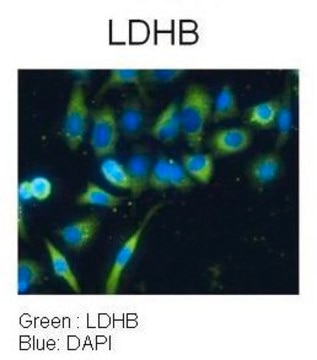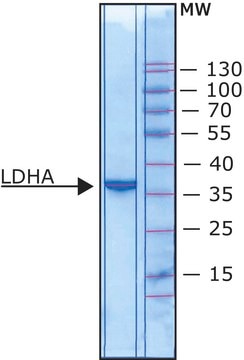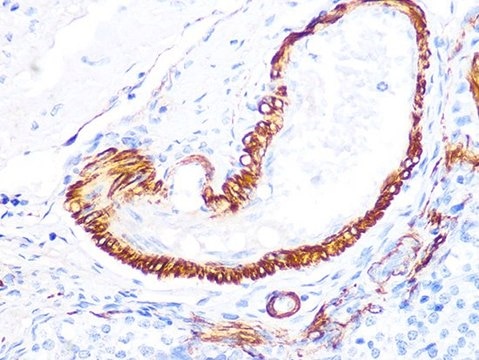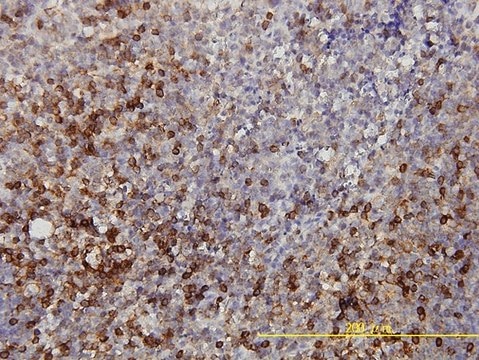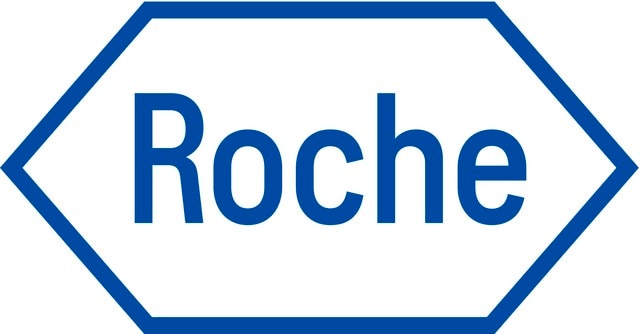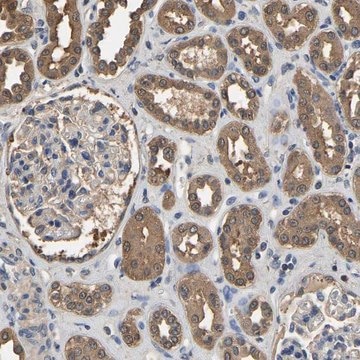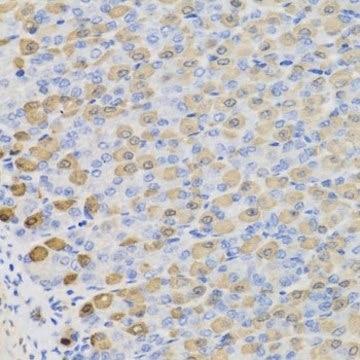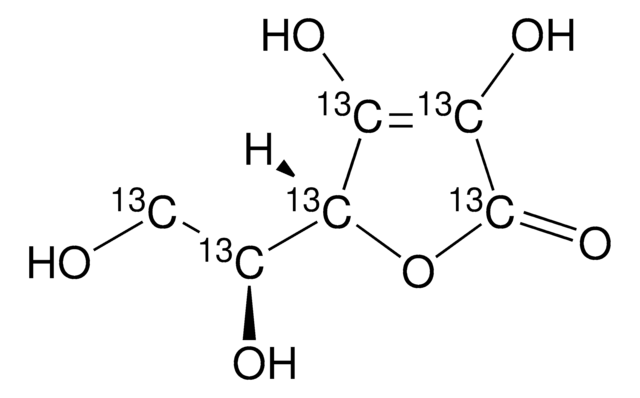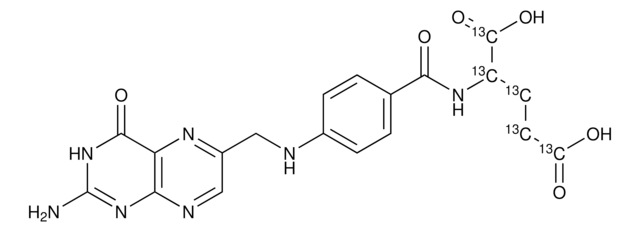ABC927
Anti-LDHB Antibody
from rabbit, purified by affinity chromatography
Synonym(s):
L-lactate dehydrogenase B chain (EC:1.1.1.27), LDH-B, LDH heart subunit, LDH-H, Renal carcinoma antigen NY-REN-46, LDHB
About This Item
Recommended Products
biological source
rabbit
Quality Level
antibody form
affinity isolated antibody
antibody product type
primary antibodies
clone
polyclonal
purified by
affinity chromatography
species reactivity
human
species reactivity (predicted by homology)
rat (based on 100% sequence homology), canine (based on 100% sequence homology), mouse (based on 100% sequence homology), rabbit (based on 100% sequence homology), bovine (based on 100% sequence homology), pig (based on 100% sequence homology), horse (based on 100% sequence homology), chimpanzee (based on 100% sequence homology)
technique(s)
immunohistochemistry: suitable (paraffin)
western blot: suitable
NCBI accession no.
UniProt accession no.
shipped in
wet ice
target post-translational modification
unmodified
Gene Information
human ... LDHB(3945)
General description
Immunogen
Application
Quality
Western Blotting Analysis: 0.25 µg/mL of this antibody detected LDHB in 10 µg of human PANC-1 cell lysate.
Target description
Other Notes
Still not finding the right product?
Give our Product Selector Tool a try.
Storage Class
12 - Non Combustible Liquids
wgk_germany
WGK 1
flash_point_f
Not applicable
flash_point_c
Not applicable
Certificates of Analysis (COA)
Search for Certificates of Analysis (COA) by entering the products Lot/Batch Number. Lot and Batch Numbers can be found on a product’s label following the words ‘Lot’ or ‘Batch’.
Already Own This Product?
Find documentation for the products that you have recently purchased in the Document Library.
Our team of scientists has experience in all areas of research including Life Science, Material Science, Chemical Synthesis, Chromatography, Analytical and many others.
Contact Technical Service